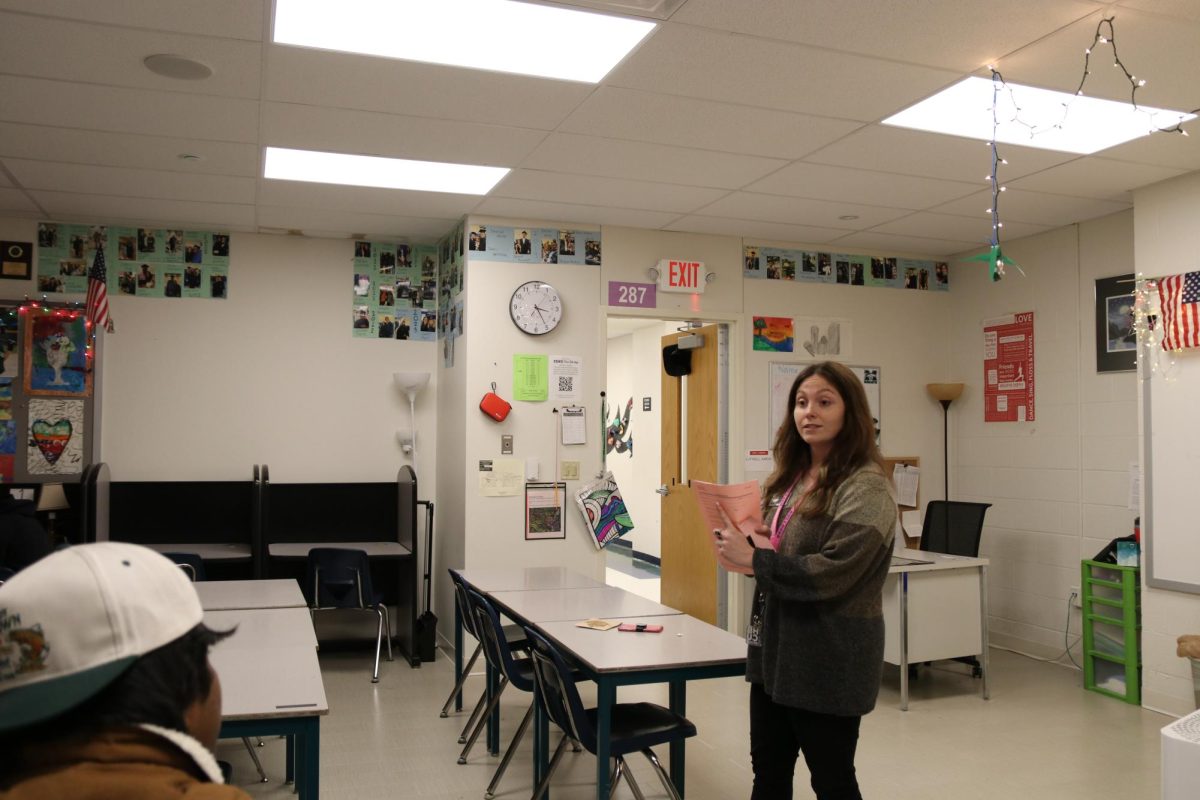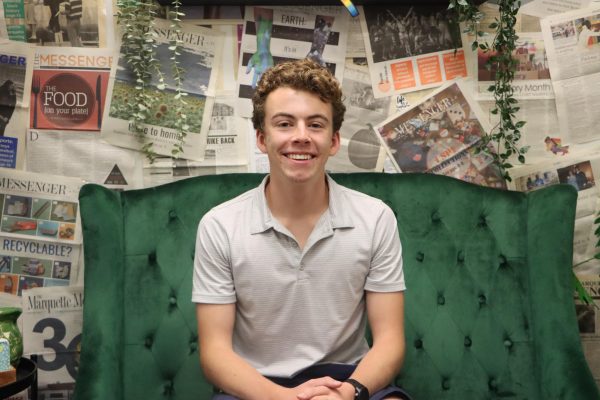Emily Thompson, French teacher, began supervising detention two years ago. It gave her time to complete work in the building, it was a paid opportunity and it allowed her to connect with students she wouldn’t have otherwise.
Compared to detention last year, Thompson said there’s one major difference this year: more students.
“With more students comes issues like managing all of them, making sure they’re getting work done,” Thompson said. “It’s like managing a class at that point—a class of kids who had a behavior that put them there.”
Last school year, 32 tardy referrals, or detentions, were given in the first semester, and 56 were given in the second semester. This total of 88 was down from the 156 given in the 2021-2022 school year.
So far this year, 199 detentions from tardy referrals have already been given.
Principal Dr. Tracey Waeckerle said tardies are the most common discipline and the main reason for students being in detention, especially with students receiving tardies throughout the school day.
Dr. Waeckerle said the tardy system is essentially the same as last year. The difference is it’s become a larger priority with attendance being treated more strictly and consistently.
“Things got a little relaxed during COVID, and we never fully bounced back from being really on top of it,” Dr. Waeckerle said.
Dr. Waeckerle said students roaming the halls and frequently arriving late to class was a major concern for staff and administration last year, as it could disrupt the classroom learning environment.
This year, teachers are no longer required to fill out a detention form. The grade-level offices now monitor all attendance and tardies.
Though the general trend for the past two years has been an increase in referrals during the second semester, Dr. Waeckerle said she hopes consistent discipline for tardies will enable a decrease in referrals next semester, as students adjust.
Two weeks ago, Evan Urkevich, senior, served a weekend detention after collecting five tardies in his second-hour class.
Urkevich said he was caught off guard by this disciplinary action as he couldn’t find this information in Infinite Campus and didn’t recall receiving a warning.
Overall, Urkevich said he would like to see better communication before tardies accumulate.
McKenna Peters, social studies teacher, said on average, one student arrives late to each of her class periods. Most students without a pass arrive within five minutes.
Peters usually marks students tardy right after the bell.
“As long as they give me the heads up, they can walk in after the bell, but when the bell rings, that’s what Dr. Waeckerle has asked us to do,” McKenna said.
Peters said it’s important that students with challenges such as having classes that are far apart communicate with their teachers.
“Having those conversations makes it easier so we don’t have any issues,” Peters said.
Shashankh Srikanth, senior, has had several after-school detentions this year due to tardies.
“I understand punishing people for tardies, but I don’t think detentions are the right answer,” Srikanth said. “There’s a lot of help needed for cleaning the lunch tables. Maybe during lunches they could help out.”
Srikanth said tardies will always be an issue, and a change in the punishment may be helpful.




